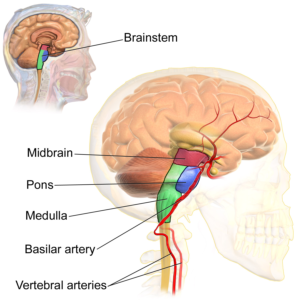Chronic headaches in children can be cause for alarm. We treat children with chronic headaches. We have multiple parents contact us about their children with chronic headaches:
Karen, who’s daughter has headaches said this,“My 10 year old daughter gets them pretty much every day, and this has been going on for six months. She missed a lot of school, and now is starting to get them again in the summer. The doctor ordered a CT scan which didn’t show anything. What can this be? Could it be sinuses?”
Headaches are common in children. They’re usually “primary” headaches — meaning they’re not caused by anything specific, and they’re not associated with any specific medical condition. They’re just headaches.
Kinds of “primary” headaches in children include:
 Migraine. Maybe the most common of the more-severe headaches. In children they’re often bilateral and fairly brief. Sometimes they’re accompanied by vomiting, or are worsened by lights or sound; often the best homemade “cure” is to rest with lights out and covers over the windows. Migraines often run in families. However, we find there can be slight abnormalities in areas of brain function called the Midbrain (depicted in red in the picture here)
Migraine. Maybe the most common of the more-severe headaches. In children they’re often bilateral and fairly brief. Sometimes they’re accompanied by vomiting, or are worsened by lights or sound; often the best homemade “cure” is to rest with lights out and covers over the windows. Migraines often run in families. However, we find there can be slight abnormalities in areas of brain function called the Midbrain (depicted in red in the picture here)
Tension. These create a band-like, or squeezy feeling in the head, and aren’t usually severe. Yes, kids of all ages get tense. In our office these are the most common, and often are associated with abnormal neck movement. The eyes work very closely and have to coordinate with your neck, so when you have chronic neck issues, you usually have an eye tracking issue that we can correct in the office with a few simple exercises most of the time.
Chronic daily headache. This sounds like Karen’s daughter. They often occur on top of occasional more-severe headaches, like migraines.
Check out our YouTube Video on the Neurology of Headaches and Migraines!
The general principles of chronic daily headache:
- Avoid daily Advil or Tylenol. If you use those more than 3 days a week, you will perpetuate the headaches. I know this sounds odd, but I promise it is true.
- Try to maximize healthy lifestyle. Good regular sleep, diet, avoiding a lot of preservatives and chemicals, getting regular exercise. Again, I know this sounds odd, but it does help. Avoid gluten and dairy if necessary.
- Try not to miss school. That inevitably makes headaches worse.
- Consider Chiropractic/massage/yoga/relaxation therapy.
- If there is an overlay of depression/anxiety/mood issues, deal with that. There is often a psychological component, either contributing to the headaches, or being caused by the headaches and missing school and activities. Food triggers often cause depression and mood issues.
Yet another headache myth to dispel: vision problems DO cause recurrent headaches in kids. Some people who are nearsighted will squint, and by the end of the day will develop tension-like pain from tightening up the muscles of their face and scalp.
Headaches in children are common, and most commonly are caused by a minor infection, dehydration, hunger, or stress. If they’re recurrent, they’re likely to be due to food sensitivities, GI issues, or slight dysfunction in the balance of brain function. One of the common primary headaches, like tension headaches or migraine or chronic daily headache. Headaches that are progressive (worsening), or associated with other prominent or worsening symptoms, need an urgent medical evaluation, but those are fortunately rare. More typically, headaches just need to be treated like, well, headaches.
-Doc Teames
Board Certified Chiropractic Neurologist

